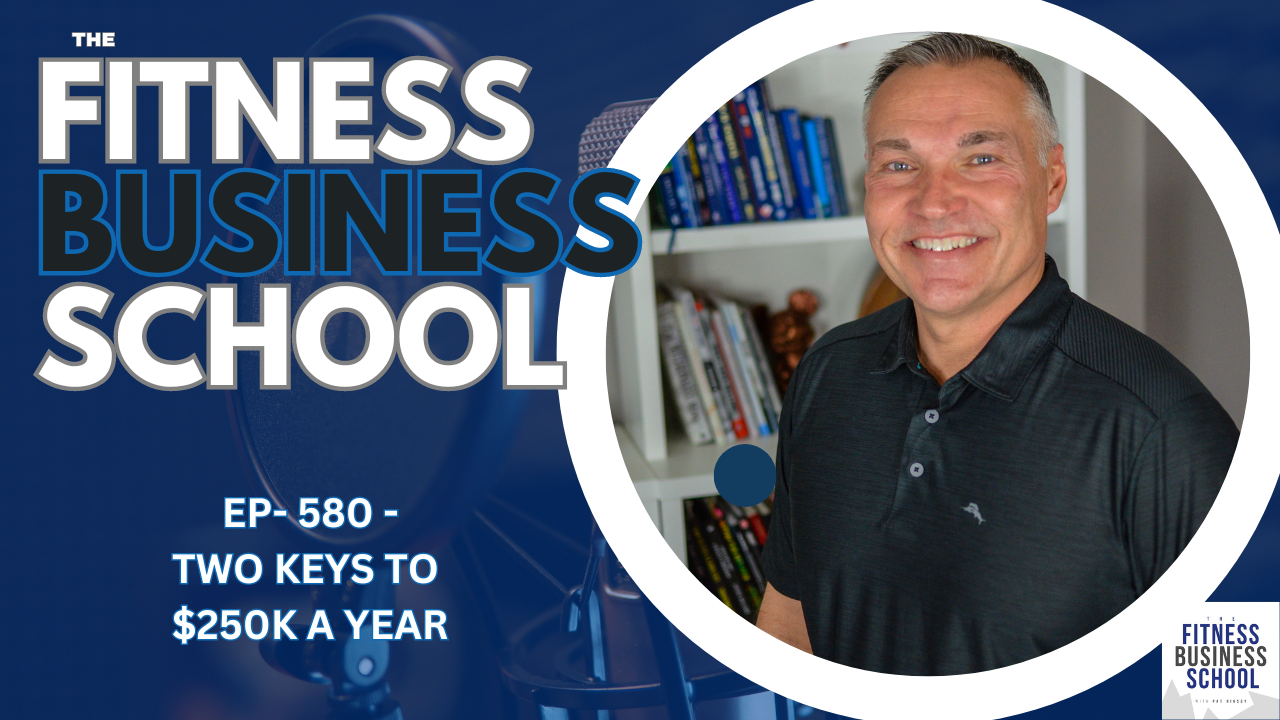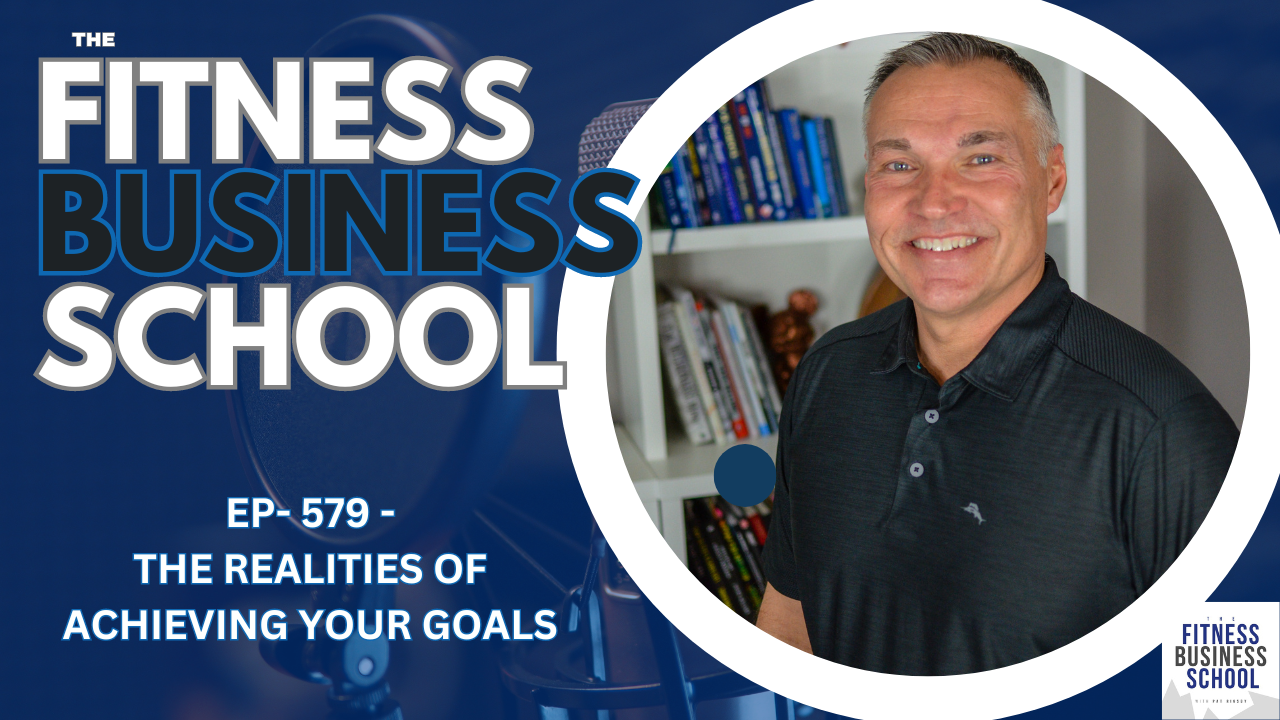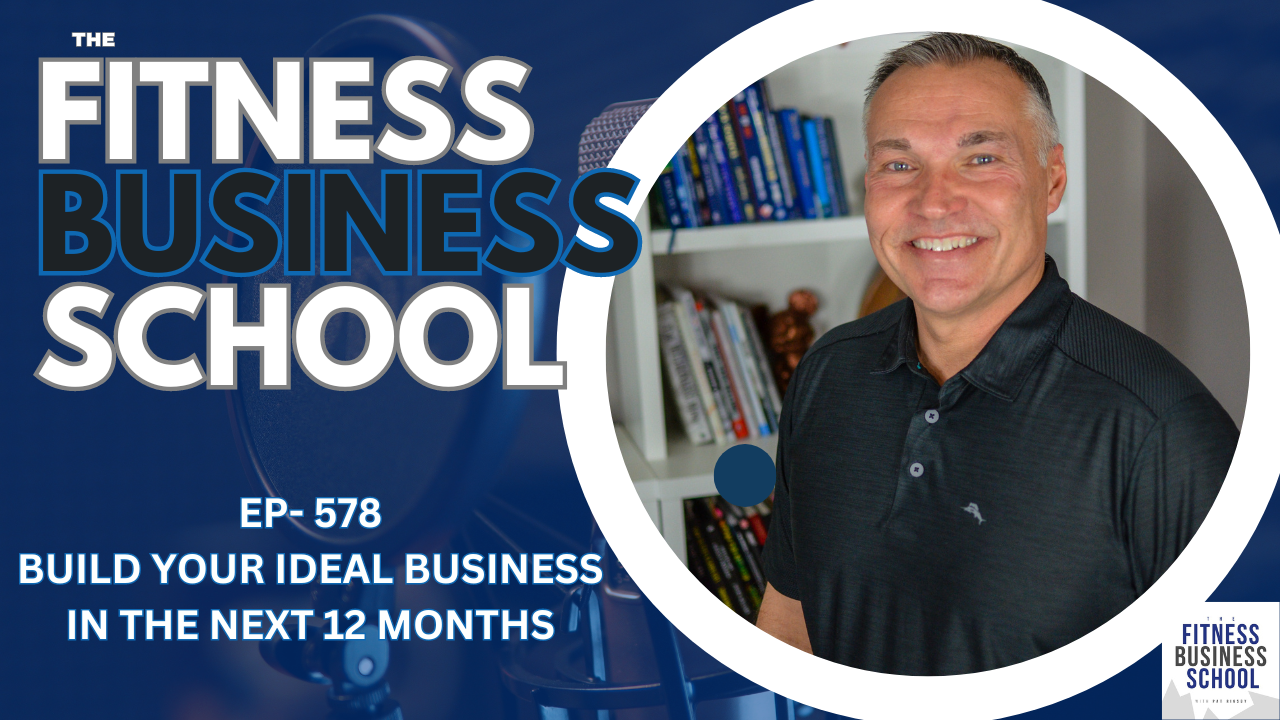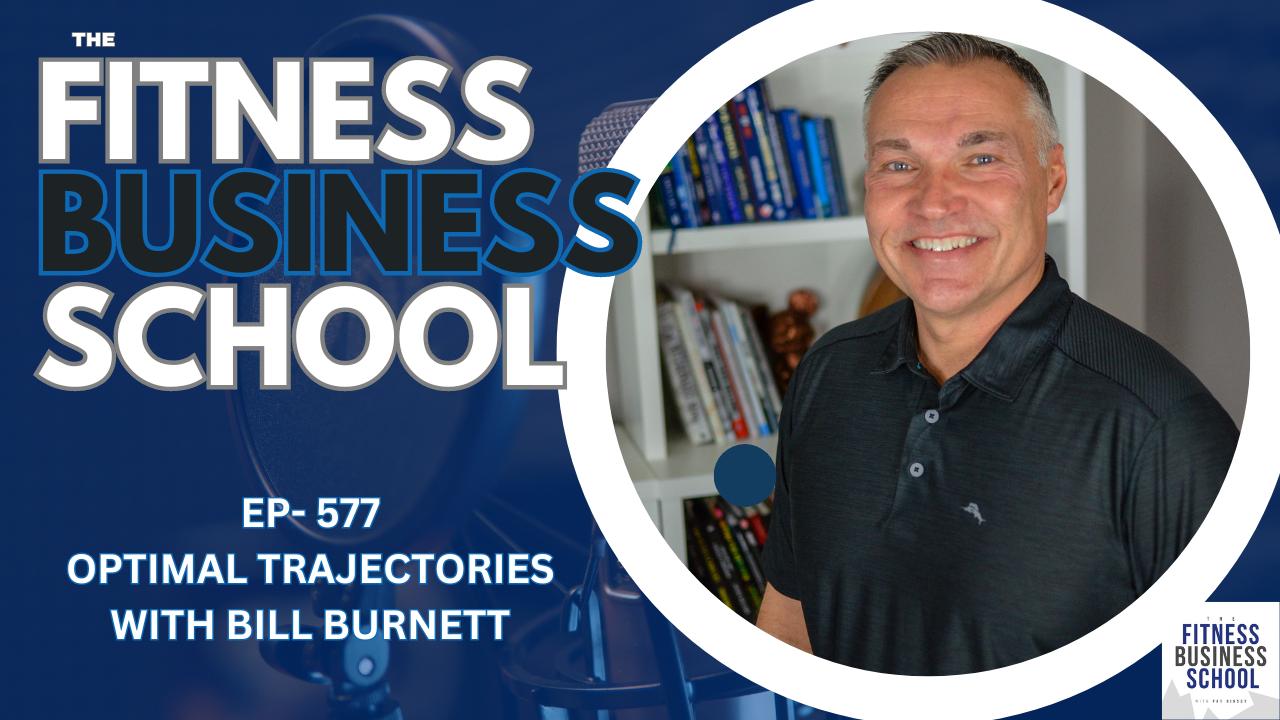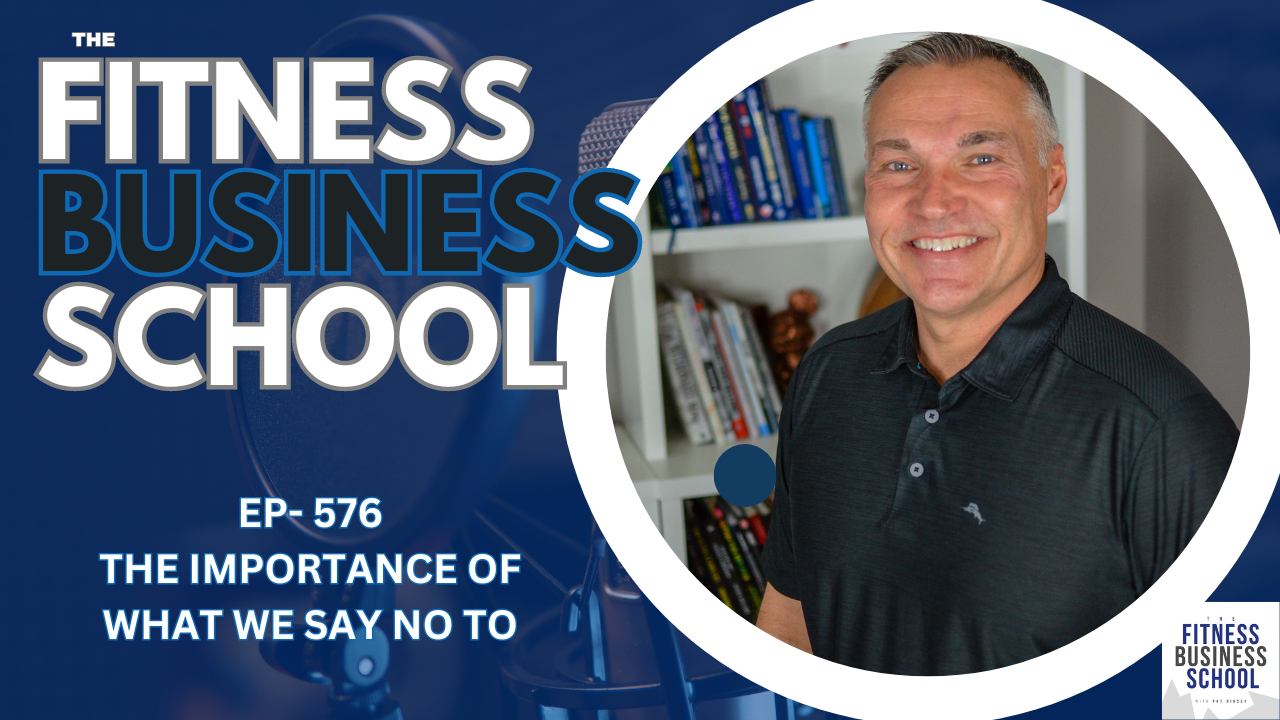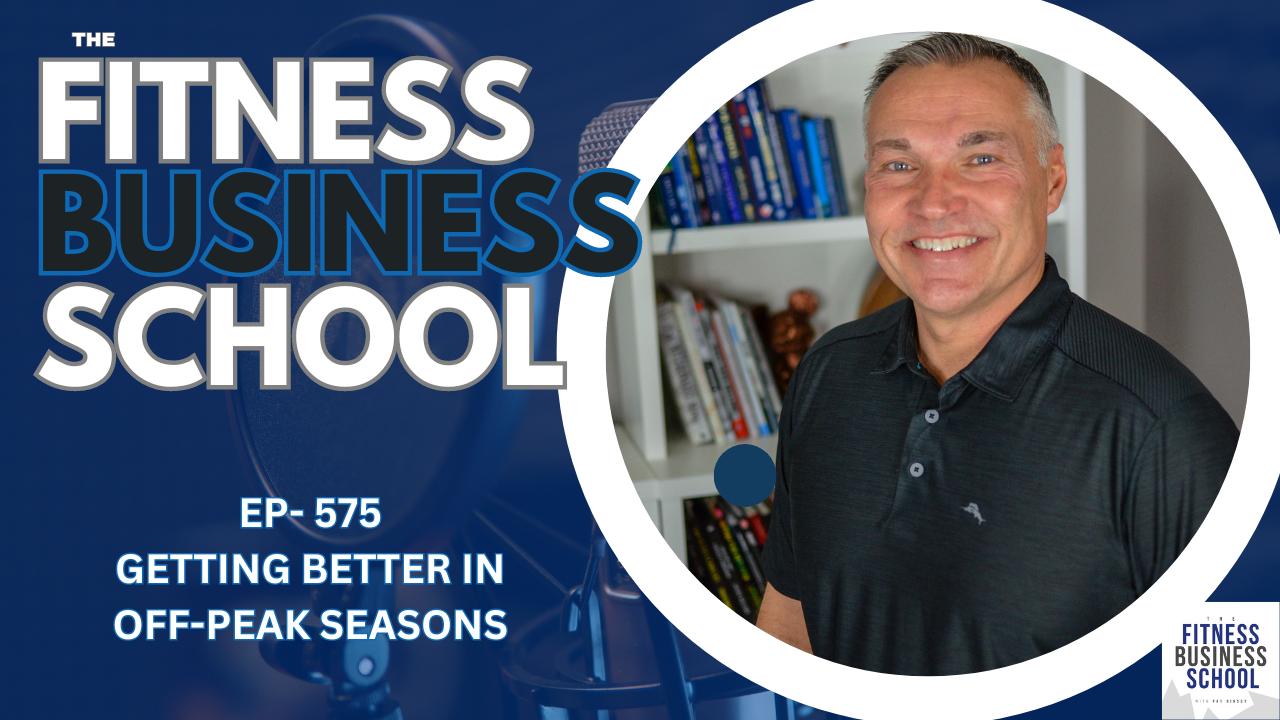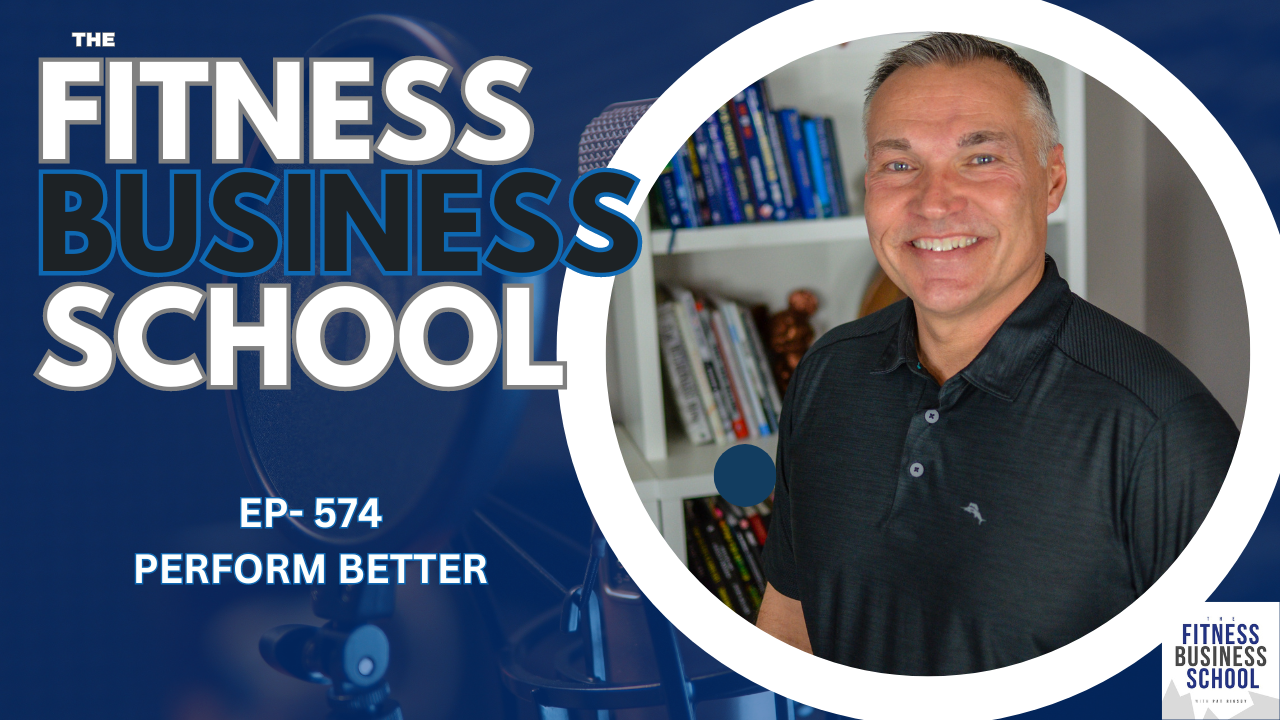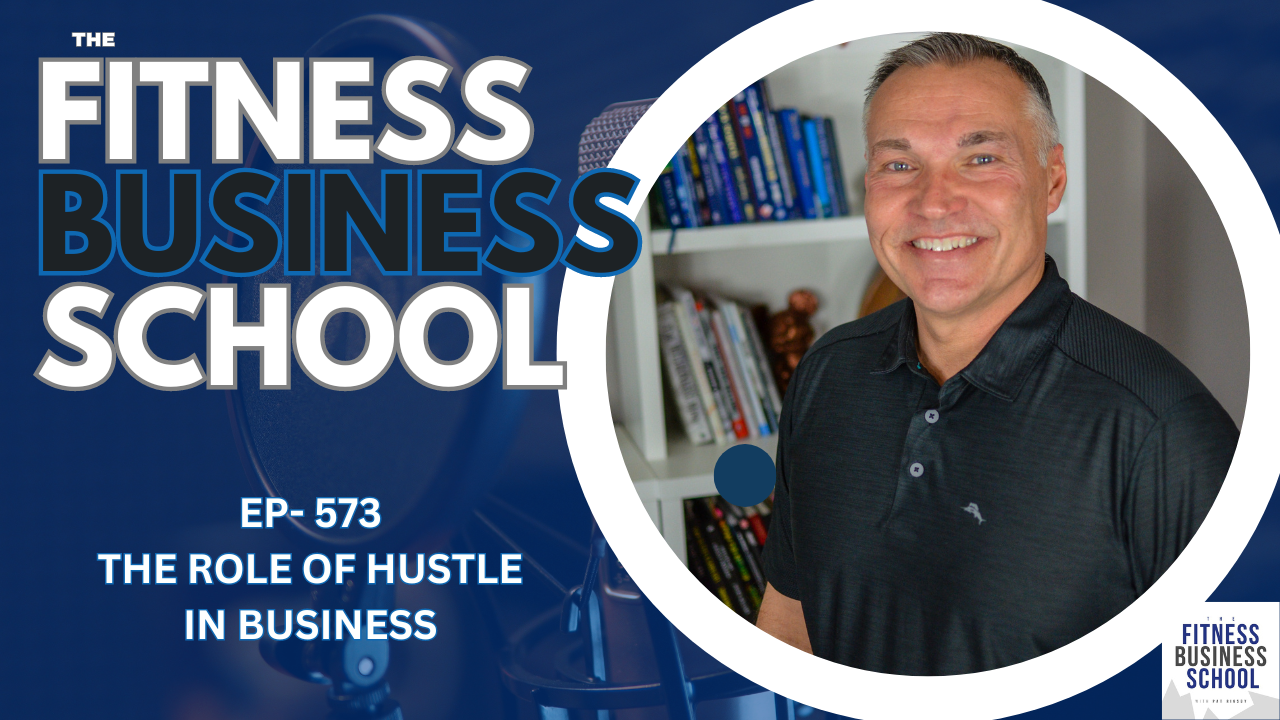Show Notes
00:00 Introduction: Can Things Be Too Simple?
00:28 The Art of Simplifying Complex Ideas
02:17 The Pitfalls of Oversimplification
05:09 Understanding the Buyer’s Journey
07:46 Balancing Simplicity and Complexity in Business
12:28 Conclusion and Special Offer
Full Transcript
Hey, Pat Rigsby here, and in today’s episode, we’re I want to ask the question, can things be too simple? Let’s get to it.
Welcome to the Fitness Business School podcast, the show for fitness business owners who want to grow their income, increase their impact and improve their lifestyle. Be sure to listen to the end of this episode because we have a brand new special offer exclusive for listeners. So stay tuned.
One of the things that I hear from clients very regularly, or if I go and speak in an event, you’ll have people tell me that I’m pretty adept at simplifying things to make complex ideas, feel simpler, to make things that felt overwhelming, feel less daunting. And clearly not only do I take that as a compliment, but it’s something I strive to do.
I was definitely not a business owner who really got marketing quickly. I think the, I tried to read some kind of deep marketing books originally, went way back into my baseball coaching career, trying to figure out how we could recruit better. And I felt that the textbook-ish style things the big business style things just didn’t fit for me for whatever reason.
And it, and I just couldn’t wrap my head around it. And so I arrived at this book, the wizard of ads by Roy H. Williams, who is and was a marketing genius that I felt like I had the market cornered in our world on his expertise early on. And just finally in the last few years, have I seen him get.
More mainstream in the internet world and good for all because I think that he did something that just helped me tremendously in that he really spent a lot of time talking about, just human behavior and why people do what they do and how they operate and Helped me point My, my interest to look marketing through that lens instead of always thinking about what I want.
And it’s a little bit of a segue, right? Because I think that. We are in a society now that in some ways tries to oversimplify pretty much everything, right? I think social media lends itself to that. I think that people can do these kind of quick little reels or clips and, or post things, and it almost is presented like it’s the answer.
I’m, I remember years ago. Russell Brunson, who I’ve known for, longer than 15 years now. He launched ClickFunnels and the hook was one funnel away. And it was a wonderful hook, right? Like it’s such a. Such a strong kind of grabber that gets your attention. And if you pay attention to any of the work Russell’s done to promote ClickFunnels, it always feels simple, right?
It’s not a coincidence that the books all are illustrated with like stick figures, one funnel away makes it feel like, Hey, if you get this one funnel to work, you’ll be. You’ll be set for life and I actually, right before that came out, I had heard a Perry Belcher, another very well known direct response marketer talk about, Hey, you just need one offer.
Like you’re one offer away from being a millionaire. But what Perry said and Russell didn’t was that you may have to go through 50 offers to find the one. And I think that sometimes the oversimplification gets us in trouble. I think that the goal is to make things as simple as they can be while still being honest and being realistic.
And I think that people are just. More complicated than this. I think business is more complicated. It’s a little bit like in the network marketing or like the network marketing world to say Hey, all you need to do is get three people. And then if they get three people and they get three people, you’ll be sitting on an Island somewhere, drinking my ties and counting your money.
And strangely having even worked with some of the. Some of the more successful network marketers, like in the nutrition space, people who were doing not six figures a month, in some cases, it just never really looked like that. And so some of this stuff, it’s maybe it’s a pet peeve of mine, it’s why I don’t really love things like talk radio, where they’ll act like they can solve all your life’s problems in like between commercial breaks.
I just don’t think that’s how humans operate. I don’t think that’s how much of anything operates. I don’t think that without context, without understanding, without trying to dive into somebody’s motivation that we can simplify things too much. And I think that the marketing side of this is what spurned this on because you’ll still see business owners.
It’s 2024 and business owners still seem almost oblivious that to the point that just because you put an ad out and spend a couple dollars to get in front of somebody and they don’t jump and do exactly what you want them to do, they’re a bad lead, they’re a poor prospect, they’re a tire kicker.
And, man, that’s a pretty myopic perspective, right? So if you think about a Facebook ad, for example. Facebook people go to largely for entertainment, right? They, that’s not where they go to shop. They go to Amazon probably to shop. They go to Etsy to shop. They go to Google. If they’re trying to do a search for something like, Hey, find a restaurant or something like that.
They don’t really seek that out on Facebook. And if they do anything that even resembles seeking that on Facebook is making a post and asking for a recommendation, it’s not going there to. To look for ads, so we’re putting an ad there in their feed. And I think through the way that I view this, it’s a commercial, it’s a commercial, just like commercials would come on during your favorite television show, pre streaming.
And we all I think at least all of us who grew up in that era, that was when you went to the kitchen. That was when you went to the restroom. You’d go to the commercial, you’d come back and yeah, maybe the commercial had an impact, right? Like it gets your attention, but very rarely would something come on a commercial and you say, I’m not going to finish this show.
I’m going to just run off to the store right this minute and go purchase whatever is being promoted yet. That’s the way that a lot of people who are dabbling in paid advertising thing, they think that’s how the world works. They don’t think about. What is the actual buyer’s journey here?
What is there from being unaware of what you offer all the way to becoming a client? What does that journey look like? What does that timeline look like? Who is that person? What are their previous experiences? What are their desires? What are their hesitations? And I think that sometimes we, we do oversimplify it.
And then we get frustrated. Because our expectations aren’t met, but it’s because they’re bad expectations. And so when you were thinking about business success, I would encourage anybody and everybody to look for ways to make complex things feel simpler. There, there are certain things that you can’t oversimplify like human motivation and how they behave because.
No prospect exists in the vacuum with just them and our ad or our business. They have all these other. Extenuating circumstances. They’ve got kids or they’ve got jobs or they’ve got other obligations or responsibilities. And I think about, I was presented with the opportunity to come in and train at a local facility recently and man, they do a wonderful job.
They’ve got a great business. They have grown year after year and they have lots to be proud of. They started their business about the time I moved to Louisville. So I’ve got to see it from up close at various points when they were an active client. And then from afar, just because proximity.
And the, on the surface, It’s this wonderful offer and as well, he must not want to do it and not know that the owners are smart enough that they wouldn’t think this way. But I think on the surface, it could be easily interpreted. If you took an overly simplistic view maybe he’s not.
Interested because he didn’t just jump at the chance to go do this. Next week I go to Florida to host scale live with Doug Spurling and speak at perform better. And then hang out a little bit with my family the following week. We’ve got our ideal business mastermind in town for two days, which usually amounts to three days for me because people are coming to town the day prior.
The following week, we. And that weekend we play in a baseball tournament out of town and then come right back and then head to California for our boardroom mastermind. A little bit of time away with family and then come back and then we take a baseball trip to Florida. There maybe are five legitimately free days in the next.
Month for me to be here, to be present, to do things. But there are so many people that I encounter that they’re owners who if somebody didn’t respond to their offer in the way they want. They wouldn’t give any consideration that they wouldn’t say I wonder why they didn’t respond. I wonder what’s going on in their life.
I wonder why that’s not what they should do, because that’s what I want them to do. And so I would encourage you as a business owner to dig a little bit deeper to understand that things aren’t. It all was as simple as we want them to be. And that doesn’t mean that you should overcomplicate things.
It doesn’t mean that you should add complex where it shouldn’t be. For years, for a decade and a half, I’ve had owners say why aren’t my coaches generating more referrals? I want them to generate referrals. I’m like was it in their job description? Have you trained them to do it?
Do you go over and staff meetings every week? If not, then again, it’s a silly expectation. So when you’re trying to improve your business, then the answer, yeah, make things simpler, try to. Look for ways to eliminate the overwhelm to cure the complexity, but you can’t oversimplify everything. Not everything is as simple as we want it that, Hey, if I go spend a dollar on marketing, I’ll make 10 back because that’s what I want.
Or if I want my trainers to do this. Then that’s what should happen or we do good work. So if we get somebody through the front door, then they’ll stay. No, it’s rarely as simple as that because we’re dealing with human beings and human beings are layered and complex and have full lives. And we’re only a small part of that.
So when you were looking to improve your business, I would encourage you to gravitate towards simplicity where you can, but understand that. If you try to make things too simple, there are going to be gaps that you didn’t expect that likely can bring you down.
Thanks for listening to this episode of The Fitness Business School.
Before you go, I have a quick announcement:
One of of the things that we’ve been doing with our current clients is taking them through this Ideal Business diagnostic and really what it is, this checklist that allows you to pinpoint exactly what your business needs next so you can keep improving, keep growing, and build a business that you love to own, one that pays you well, one that allows you to have the impact you wanna have and one that allows you to have a lifestyle that you truly enjoy.
In this diagnostic, we walk through everything and we do an evaluation and can instantly pinpoint what you need to do next to build that business that you want. I’m going to extend this opportunity to get on with either me or my team and take you through this evaluation and fix your business’s most vital needs fast.
So if we take you through this, you’re gonna be able to make those vital changes that you need to finally have what I call your Ideal Business. If you’d be interested in going through this entirely free, risk-free diagnostic with us and learn what you already have in place, what you’re doing well and where are your greatest opportunities for rapid improvement are just shoot me an email with diagnostic in the subject line to [email protected].
Again, an email to [email protected] with diagnostic in the subject line will get
you scheduled and take you through this evaluation to help you build the business you want.
